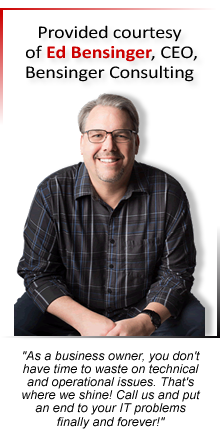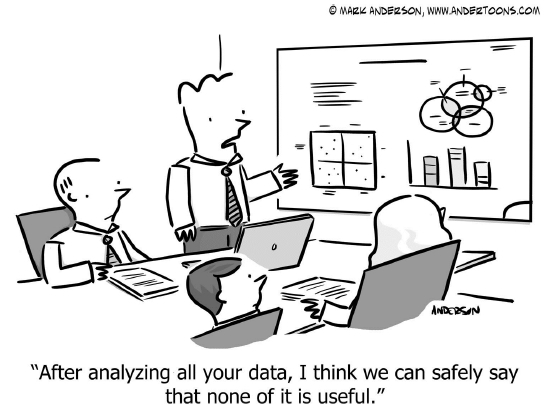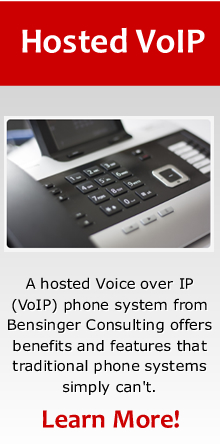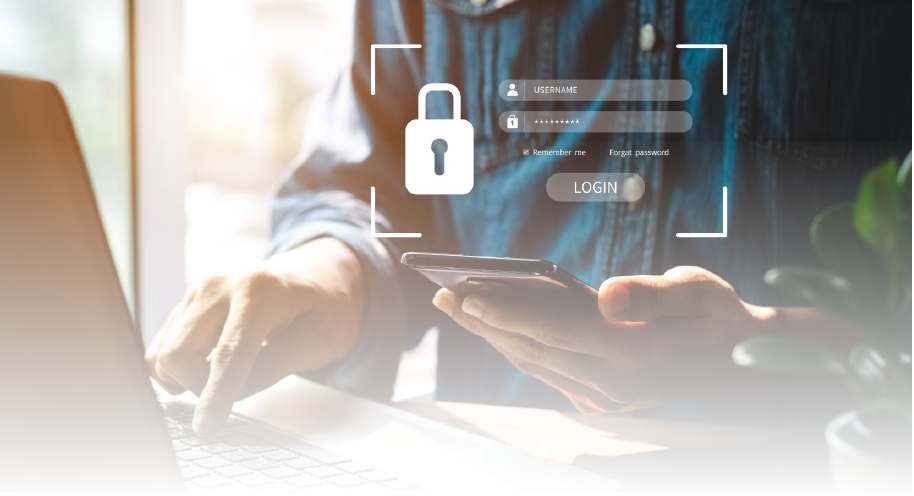
Keep Your Information Secure
By Using Strong Passwords
We use passwords for just about everything. Most of us have to enter a password to get into our computers, then enter more passwords to access our e-mail, social media profiles, databases and other accounts.
Even our cell phones and tablets can and should be password-protected. In fact, if you aren’t securing all of your devices and accounts with passwords, you should definitely start. It could help prevent your business and personal information from becoming compromised.
Why Passwords?
We use passwords to ensure that those who don’t have access to our accounts can’t get access. Most of our devices hold large amounts of personal information.
Think about the potential harm someone could do if they gained access to your personal cell phone. They would immediately be able to see all of your contacts, pictures and applications. They might even be able to log in to your e-mail,
where they could obtain your banking information. If this type of access falls into the wrong hands, it could be detrimental to your life.
Passwords offer the first line of defense to prevent others from obtaining sensitive information. This becomes even more important if you own a business.
Each of your employees should be utilizing strong passwords to access company information. If your business is not using passwords – or is using simple passwords – you could be opening yourself up to hackers and cybercriminals.
If a cybercriminal gains access to your company’s private information through a weak password, they will gain access to customer information, which could damage your reputation and open you up to lawsuits. That being said, everyone within your business needs to utilize complex and unique passwords.
Continued on page 2
Continued from page 1
Making A Strong Password
Not all passwords are created equal. When it comes to making a strong password, you must think about it. If you use a password that you can’t remember, then it’s essentially useless. And if you use a password that’s too easy to remember, your password probably won’t be strong enough to keep cybercriminals out. Your password should be long, have a mix of lowercase and uppercase letters, utilize numbers and special characters, have no ties to personal information and should not be a word from the dictionary.
In the grand scheme of things, it’s not enough to just create complex passwords. They also need to be unique. In addition to this, you should use a different password for each and every one of your accounts to help maximize their effectiveness. Think about it this way: let’s say you use the same password across your business e-mail accounts, social media accounts and bank accounts.
If someone decrypts the password for your Facebook page, they now have the password for more valuable accounts. If you can’t tell that your social media account was compromised, the cybercriminal could try to use that same password to gain access to more important accounts.
It’s a dangerous game that can be avoided by using unique and complex passwords for every account you use.
Making A Strong Password
Not all passwords are created equal. When it comes to making a strong password, you must think about it. If you use a password that you can’t remember, then it’s essentially useless. And if you use a password that’s too easy to remember, your password probably won’t be strong enough to keep cybercriminals out. Your password should be long, have a mix of lowercase and uppercase letters, utilize numbers and special characters, have no ties to personal information and should not be a word from the dictionary.
In the grand scheme of things, it’s not enough to just create complex passwords. They also need to be unique. In addition to this, you should use a different password for each and every one of your accounts to help maximize their effectiveness. Think about it this way: let’s say you use the same password across your business e-mail accounts, social media accounts and bank accounts.
If someone decrypts the password for your Facebook page, they now have the password for more valuable accounts. If you can’t tell that your social media account was compromised, the cybercriminal could try to use that same password to gain access to more important accounts.
It’s a dangerous game that can be avoided by using unique and complex passwords for every account you use.
Remembering All Of These Passwords
You may be worried about remembering all of your passwords if you have to create a unique one for each of your accounts. Your first thought may be to write them down, but that might not be the most secure option. If someone gets their hands on your little black book of passwords, they’ll immediately gain access to all of your accounts with a handy directory showing them exactly where to go. Instead, you should utilize a password manager to help keep track of all of this sensitive information.
With a password manager, you only have to worry about remembering the master password for your password manager. All of your other passwords will be securely hidden. Password managers also give you the option to create random passwords for your accounts to bolster their security. That way you can have the most complex password possible without worrying about forgetting it. Additionally, password managers can also help remember the answers to security questions and more so that you never get accidentally locked out of one of your accounts.
They’re easy to use, convenient and secure. Passwords are an important part of your cyber security plan. Make sure you and your employees are using complex and unique passwords. It can also help you to implement some training so your employees understand the importance of secure passwords. When used correctly, passwords will help deter any would-be cybercriminals from accessing your sensitive information.
"You should use a different password for each and every one of
your accounts to help maximize their effectiveness"
your accounts to help maximize their effectiveness"
"I DIDN’T KNOW"
Unfortunately, That Excuse Doesn’t Replenish Your Bank Account, Resolve A Data Breach Or Erase Any Fines And Lawsuits. It’s coming ...
• That day a hacker steals critical data, rendering your office useless...
• That day when your bank account or credit card is compromised...
• Or that day when your customers’ private lives are uprooted...
Now, we have the perfect way to help reduce your risk and keep you safe! Simply sign up to receive our FREE “Cyber Security Tip of the Week.” We’ll send these byte-sized quick-read tips to your e-mail in-box. Every tip is packed with a unique and up-to-date real-world solutions to keep your safe online. Cybercriminals and hackers are constantly inventing NEW ways to infiltrate your company, steal your assets and disrupt your life. The ONLY way to STOP THEM is by CONSTANTLY EDUCATING yourself on how to PROTECT what’s yours!
Get your FREE Cybersecurity Tip of the Week! Visit bensingerconsulting.com/tips/
Unfortunately, That Excuse Doesn’t Replenish Your Bank Account, Resolve A Data Breach Or Erase Any Fines And Lawsuits. It’s coming ...
• That day a hacker steals critical data, rendering your office useless...
• That day when your bank account or credit card is compromised...
• Or that day when your customers’ private lives are uprooted...
Now, we have the perfect way to help reduce your risk and keep you safe! Simply sign up to receive our FREE “Cyber Security Tip of the Week.” We’ll send these byte-sized quick-read tips to your e-mail in-box. Every tip is packed with a unique and up-to-date real-world solutions to keep your safe online. Cybercriminals and hackers are constantly inventing NEW ways to infiltrate your company, steal your assets and disrupt your life. The ONLY way to STOP THEM is by CONSTANTLY EDUCATING yourself on how to PROTECT what’s yours!
Get your FREE Cybersecurity Tip of the Week! Visit bensingerconsulting.com/tips/
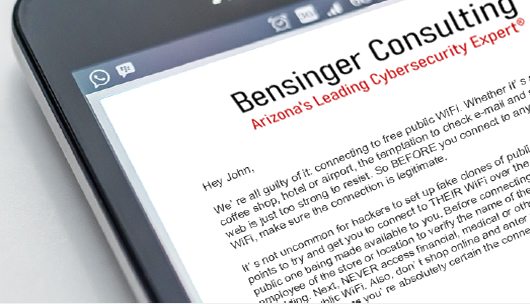

The Secret To Job Happiness
Might Be Who You Work With
If I were to ask you where job happiness comes from, how would you respond? Conventional wisdom says that your happiness at work comes from one of these four sources:
• "Follow your passion" (what)
• "Play to your strengths" (what again)
• "Do something with purpose" (why)
• "Live your values" (how)
It’s also true that 95% of career-success books follow one of these lines of advice, but what if they’re wrong?
What if your job happiness comes not from what you do, why you do it or how you do it ... but instead comes from the people around you? Your bosses, peers, and subordinates all can play a huge role in your job happiness. Let me give you a few examples that support this idea.
I know a talented MBA who works for a public/private partnership with a mission that would make any do-gooder proud. He is planning to quit that job because he feels the firm’s leadership disregards the human element of their work, bickers internally and lacks integrity. I’m reminded of a well-researched fact I learned during graduate school: employees don’t quit jobs, they quit supervisors. My firm once did a pro bono project for the US Navy where I observed a grueling exercise routine. I asked one of the instructors why anyone would sign up for that – and honestly, I think I expected a response about patriotism.
Instead, he explained that they join to be part of a camaraderie. It was a community where they had each other’s backs.
• "Follow your passion" (what)
• "Play to your strengths" (what again)
• "Do something with purpose" (why)
• "Live your values" (how)
It’s also true that 95% of career-success books follow one of these lines of advice, but what if they’re wrong?
What if your job happiness comes not from what you do, why you do it or how you do it ... but instead comes from the people around you? Your bosses, peers, and subordinates all can play a huge role in your job happiness. Let me give you a few examples that support this idea.
I know a talented MBA who works for a public/private partnership with a mission that would make any do-gooder proud. He is planning to quit that job because he feels the firm’s leadership disregards the human element of their work, bickers internally and lacks integrity. I’m reminded of a well-researched fact I learned during graduate school: employees don’t quit jobs, they quit supervisors. My firm once did a pro bono project for the US Navy where I observed a grueling exercise routine. I asked one of the instructors why anyone would sign up for that – and honestly, I think I expected a response about patriotism.
Instead, he explained that they join to be part of a camaraderie. It was a community where they had each other’s backs.

If the secret to job happiness is who you work with, then that means you should plan your career differently. Rather than meditate for too long on your passion and purpose, you could think about the kinds of people you really want to be around. Who do you want to be your customers? Who do you want to be your colleagues? What sorts of personalities?
Rather than sourcing job titles, you could be sourcing bosses and colleagues you want to work with. I recently told a young job-seeker, “Don’t just go find any old job in your industry. The most important thing you can do right now is to find the right boss – to hire your boss. Hire the best boss in your industry – someone who will teach you, invest in you, tell you the truth, give you real feedback, put energy into helping you discover your ideal path and then help you achieve it.” Once you land your new dream job, be mindful of the time you are spending with the people you want to work with. Don’t just track your goals and results, track the time you are spending working with the specific people in your company you want to work with.

Dr. Geoff Smart is the chairman and founder of ghSMART, a leadership consulting firm that exists to help leaders amplify their positive impact on the world.
Dr. Smart and his firm have published multiple New York Times best sellers. He stays active in his community and has advised many government officials.
GET WEEKLY CYBERSECURITY TIPS IN YOUR EMAIL!
VISIT BENSINGERCONSULTING.COM/TIPS/
Take Advantage Of Google Reviews
When you are deciding on a restaurant to dine at, you might check the Google reviews to help with your decision. The same thing goes for your business. Before people come in to buy your product or services, they might check your Google reviews – so it’s important that your reviews positively reflect your business. If you own a company, you should understand how Google reviews work and do everything you can to encourage customers to leave positive ratings and comments.
If you haven’t already claimed your Google business profile, you should do so immediately. It will allow you to add pictures and a description so customers know what to expect from your business. When customers have completed a purchase with you, encourage them to leave a review if they had a positive experience. Some customers may need help with the review process, so teach them how to leave a review if they have never done it before. Make sure you thank customers who leave positive reviews and try to fix the issues explained in your negative reviews. Being a responsive owner will reflect positively on your business. When you use Google reviews to your advantage, you will see a boost in clientele.
When you are deciding on a restaurant to dine at, you might check the Google reviews to help with your decision. The same thing goes for your business. Before people come in to buy your product or services, they might check your Google reviews – so it’s important that your reviews positively reflect your business. If you own a company, you should understand how Google reviews work and do everything you can to encourage customers to leave positive ratings and comments.
If you haven’t already claimed your Google business profile, you should do so immediately. It will allow you to add pictures and a description so customers know what to expect from your business. When customers have completed a purchase with you, encourage them to leave a review if they had a positive experience. Some customers may need help with the review process, so teach them how to leave a review if they have never done it before. Make sure you thank customers who leave positive reviews and try to fix the issues explained in your negative reviews. Being a responsive owner will reflect positively on your business. When you use Google reviews to your advantage, you will see a boost in clientele.
3 Easy Ways To Make Your Mac More Secure
Data breaches and malware attacks have been on the rise over the past few years, so you must take the necessary precautions to protect your devices.
Below you will find three easy ways to make your Mac more secure.
• Install a mobile device management profile so you can give an administrator remote access to the device. If your Mac is ever stolen, you can locate it and lock it before any of your data becomes compromised.
• Utilize multi-factor authentication which will require you to confirm your login on another device. This adds an extra layer of security to your Mac.
• Backup your data to protect yourself from ransomware attacks. Consider buying an external hard drive or a cloud storage solution and backup software to do so.
Data breaches and malware attacks have been on the rise over the past few years, so you must take the necessary precautions to protect your devices.
Below you will find three easy ways to make your Mac more secure.
• Install a mobile device management profile so you can give an administrator remote access to the device. If your Mac is ever stolen, you can locate it and lock it before any of your data becomes compromised.
• Utilize multi-factor authentication which will require you to confirm your login on another device. This adds an extra layer of security to your Mac.
• Backup your data to protect yourself from ransomware attacks. Consider buying an external hard drive or a cloud storage solution and backup software to do so.


